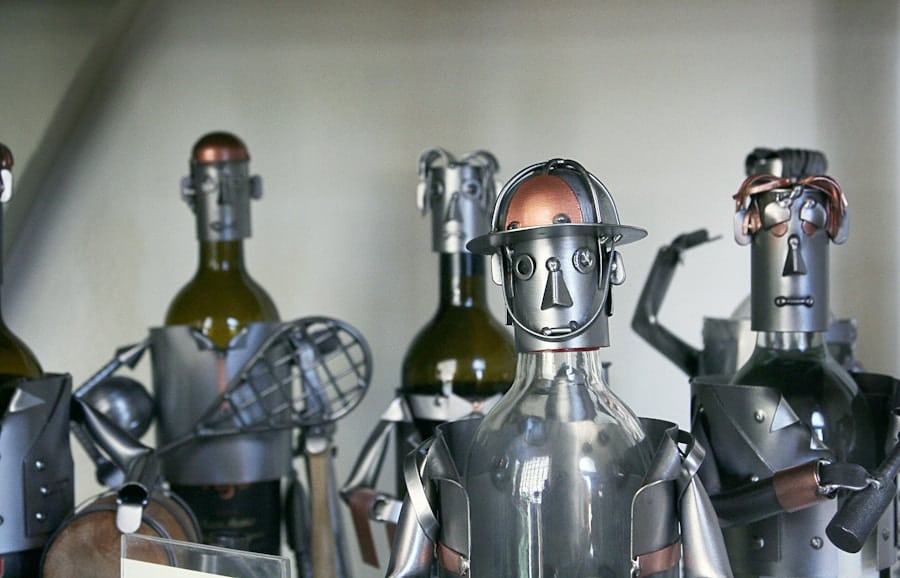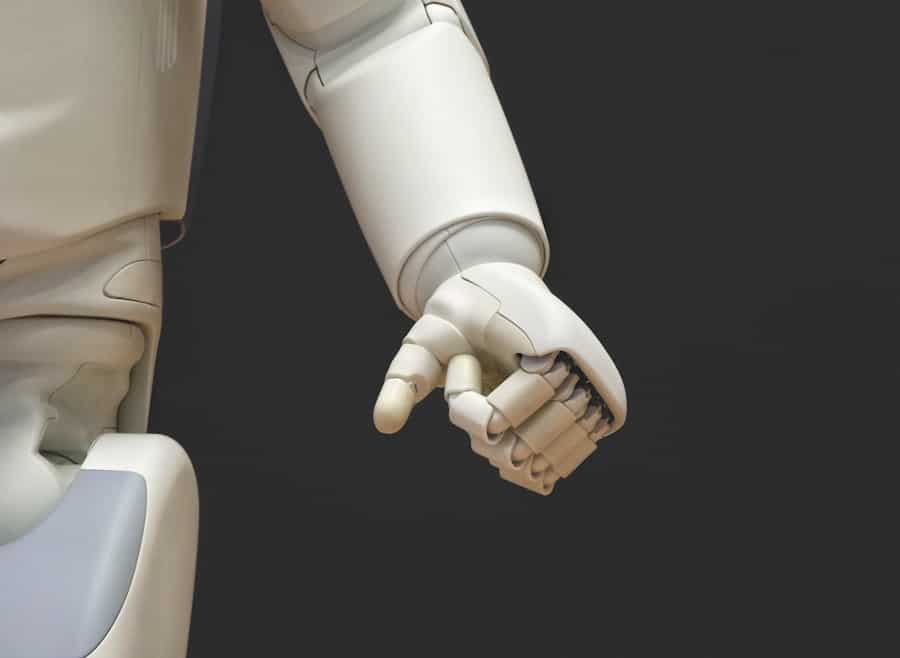The landscape of career development is undergoing a profound transformation, largely driven by advancements in artificial intelligence (AI). As individuals navigate the complexities of career transitions—whether due to industry shifts, personal aspirations, or economic factors—AI emerges as a powerful ally. The integration of AI technologies into career transition processes not only streamlines the journey but also enhances the effectiveness of various tools and resources available to job seekers.
From skill assessments to job matching, AI is reshaping how individuals approach their career paths, making the process more data-driven and personalized. In an era where the job market is increasingly competitive and dynamic, the need for effective career transition strategies has never been more critical. Traditional methods of career planning often fall short in addressing the unique needs of each individual.
AI offers a solution by leveraging vast amounts of data to provide insights that were previously unattainable. By analyzing trends, skills in demand, and individual capabilities, AI can help job seekers make informed decisions about their career trajectories.
Key Takeaways
- AI is revolutionizing career transition by offering personalized skill assessment, learning paths, job matching, mentoring, networking, and predictive analytics.
- AI-powered skill assessment tools help individuals identify their strengths and weaknesses, enabling them to bridge skill gaps for career advancement.
- Personalized learning paths and resources tailored to individual needs and learning styles enhance skill development and career growth.
- AI-driven job matching and recommendations connect individuals with suitable job opportunities based on their skills, experience, and career goals.
- Virtual mentoring, coaching, networking, and community building facilitated by AI provide support and guidance for career transition and success.
AI-Powered Skill Assessment and Gap Analysis
Accurate Skill Assessment
This data-driven approach provides a clearer picture of where an individual stands in relation to their desired career path. For example, platforms like LinkedIn Learning and Coursera have integrated AI to assess users’ skills through quizzes and project-based evaluations. These platforms can identify specific areas where users may lack proficiency and suggest targeted resources for improvement.
Uncovering Hidden Skills
By employing natural language processing (NLP) techniques, AI can also analyze resumes and LinkedIn profiles to highlight transferable skills that may not be immediately apparent to the user. This level of insight empowers individuals to focus their efforts on developing the skills that are most relevant to their career goals, ultimately enhancing their employability.
Enhancing Employability
Overall, AI-powered career transition tools provide individuals with a more accurate understanding of their skills and abilities, enabling them to make informed decisions about their career development. By leveraging AI, individuals can bridge the gap between their current skills and their desired career path, increasing their chances of success in the job market.
Personalized Learning Paths and Resources

Once skill gaps have been identified, AI can facilitate the creation of personalized learning paths tailored to individual needs. Unlike one-size-fits-all training programs, AI-driven learning solutions adapt to the learner’s pace, preferences, and specific skill requirements. This customization is particularly beneficial in a world where continuous learning is essential for career advancement.
For example, platforms like Udacity and Pluralsight utilize AI algorithms to curate learning experiences based on user behavior and feedback. If a user struggles with a particular concept in a programming course, the platform can recommend supplementary materials or alternative courses that address those weaknesses. Additionally, AI can track progress over time, adjusting the learning path as the individual acquires new skills or shifts their career focus.
This dynamic approach not only enhances engagement but also ensures that learners are equipped with the most relevant knowledge and competencies for their desired roles.
AI-Driven Job Matching and Recommendations
The job search process can often feel overwhelming, with countless opportunities available across various platforms. AI-driven job matching systems streamline this process by analyzing both job seekers’ profiles and job descriptions to identify optimal matches. These systems go beyond simple keyword matching; they leverage machine learning algorithms to understand the nuances of both candidates’ experiences and employers’ needs.
For instance, platforms like ZipRecruiter employ AI algorithms that analyze millions of job postings and candidate profiles to provide tailored job recommendations. By considering factors such as skills, experience, location preferences, and even cultural fit, these systems can present candidates with opportunities that align closely with their aspirations. This not only saves time for job seekers but also increases the likelihood of finding a position that truly fits their qualifications and career goals.
Moreover, AI-driven job matching can also benefit employers by improving the quality of candidates they receive. By utilizing predictive analytics, companies can identify candidates who are not only qualified but also likely to thrive within their organizational culture. This dual benefit enhances the overall efficiency of the hiring process while fostering better long-term employment relationships.
Virtual Mentoring and Coaching
The role of mentorship in career development is well-documented; however, traditional mentoring relationships can be challenging to establish and maintain. AI is transforming this landscape by facilitating virtual mentoring and coaching experiences that are more accessible and scalable. Through AI-powered platforms, individuals can connect with mentors who possess relevant expertise and insights tailored to their specific career transitions.
For example, platforms like MentorcliQ leverage AI to match mentees with mentors based on shared interests, goals, and professional backgrounds. This targeted approach ensures that mentees receive guidance from individuals who can provide valuable insights into their desired fields. Additionally, AI can analyze interactions between mentors and mentees to offer suggestions for improving communication or addressing specific challenges faced during the mentoring process.
Furthermore, virtual coaching powered by AI can provide real-time feedback on various aspects of professional development. Tools like BetterUp utilize AI algorithms to assess users’ progress in areas such as leadership skills or emotional intelligence. By offering personalized coaching sessions based on data-driven insights, these platforms empower individuals to take charge of their development while receiving support from experienced professionals.
AI-Enabled Networking and Community Building

Networking has always been a crucial component of career advancement; however, traditional networking methods can be time-consuming and often yield limited results. AI-enabled networking platforms are changing this dynamic by facilitating connections based on shared interests, goals, and professional backgrounds. These platforms utilize algorithms to analyze user profiles and recommend potential connections that align with an individual’s career aspirations.
For instance, platforms like Shapr employ AI to match users with like-minded professionals based on their interests and goals. By presenting curated networking opportunities, these platforms help individuals expand their professional circles without the overwhelming pressure often associated with traditional networking events. Additionally, AI can analyze user interactions within these networks to suggest relevant groups or communities that align with their professional interests.
Moreover, community-building initiatives powered by AI foster collaboration among individuals pursuing similar career transitions. Online forums and discussion groups can leverage machine learning algorithms to surface relevant topics and facilitate meaningful conversations among members. This sense of community not only provides support during challenging transitions but also opens doors to new opportunities through shared knowledge and experiences.
Predictive Analytics for Career Success
Predictive analytics is another area where AI significantly impacts career transitions by providing insights into potential future outcomes based on historical data. By analyzing trends in employment patterns, skill demands, and industry shifts, AI can help individuals make informed decisions about their career paths. This forward-looking approach allows job seekers to anticipate changes in the job market and adapt their strategies accordingly.
For example, platforms like Burning Glass Technologies utilize predictive analytics to forecast emerging job trends across various industries. By analyzing labor market data, these platforms can identify which skills are likely to be in high demand in the coming years. Armed with this information, individuals can proactively develop relevant skills or pivot their career focus toward industries poised for growth.
Additionally, predictive analytics can assist organizations in workforce planning by identifying potential skill shortages or surpluses within their teams.
This symbiotic relationship between individual career planning and organizational strategy enhances overall workforce resilience in an ever-evolving job market.
Ethical Considerations and Limitations of AI in Career Transition
While the benefits of AI in career transition are substantial, it is essential to address the ethical considerations and limitations associated with its use. One significant concern revolves around data privacy; as individuals share personal information with AI-powered platforms for assessments or recommendations, there is a risk of misuse or unauthorized access to sensitive data. Organizations must prioritize transparency regarding how data is collected, stored, and utilized while ensuring compliance with regulations such as GDPR.
Moreover, there is a potential for bias in AI algorithms that could inadvertently disadvantage certain groups of candidates based on race, gender, or socioeconomic status. If not carefully monitored and adjusted, these biases could perpetuate existing inequalities within the job market. It is crucial for developers of AI systems to implement fairness checks and continuously evaluate their algorithms for unintended biases.
Additionally, while AI can enhance decision-making processes, it should not replace human judgment entirely. The nuances of human experience—such as emotional intelligence and interpersonal skills—are difficult for machines to replicate fully. Therefore, while AI serves as a valuable tool in career transitions, it should complement rather than replace traditional methods of mentorship, networking, and personal reflection.
In conclusion, as artificial intelligence continues to evolve and integrate into various aspects of career development, it holds immense potential for transforming how individuals navigate their professional journeys. By harnessing the power of AI for skill assessment, personalized learning paths, job matching, mentoring, networking, predictive analytics, and addressing ethical considerations, we can create a more efficient and equitable landscape for career transitions in the modern workforce.
A related article to “How AI Is Helping Professionals Transition Between Tech Careers” is “Which Smartwatches Allow You to View Pictures on Them?” This article discusses the features of different smartwatches that allow users to view pictures directly on their devices. It provides a comprehensive review of various smartwatches and their capabilities in displaying images. For more information, you can check out the article here.
FAQs
What is AI?
AI, or artificial intelligence, refers to the simulation of human intelligence in machines that are programmed to think and act like humans. This includes tasks such as learning, problem-solving, and decision-making.
How is AI helping professionals transition between tech careers?
AI is helping professionals transition between tech careers by providing personalized learning paths, identifying transferable skills, and matching individuals with suitable job opportunities. AI tools can analyze a professional’s background and interests to recommend relevant training and job options, making the transition process more efficient and effective.
What are some examples of AI tools used for career transitions?
Examples of AI tools used for career transitions include career assessment platforms, personalized learning platforms, and job matching algorithms. These tools use AI to analyze a professional’s skills, experience, and career goals to provide tailored recommendations for training and job opportunities in the tech industry.
How does AI identify transferable skills for professionals transitioning between tech careers?
AI identifies transferable skills for professionals transitioning between tech careers by analyzing their previous work experience, education, and skills. AI algorithms can recognize patterns and similarities between different roles and industries, identifying which skills are applicable and valuable in a new tech career.
What are the benefits of using AI for career transitions in the tech industry?
The benefits of using AI for career transitions in the tech industry include personalized guidance, efficient skill assessment, and access to a wider range of job opportunities. AI can help professionals make informed decisions about their career transitions and provide support throughout the process, ultimately increasing their chances of success in a new tech role.

